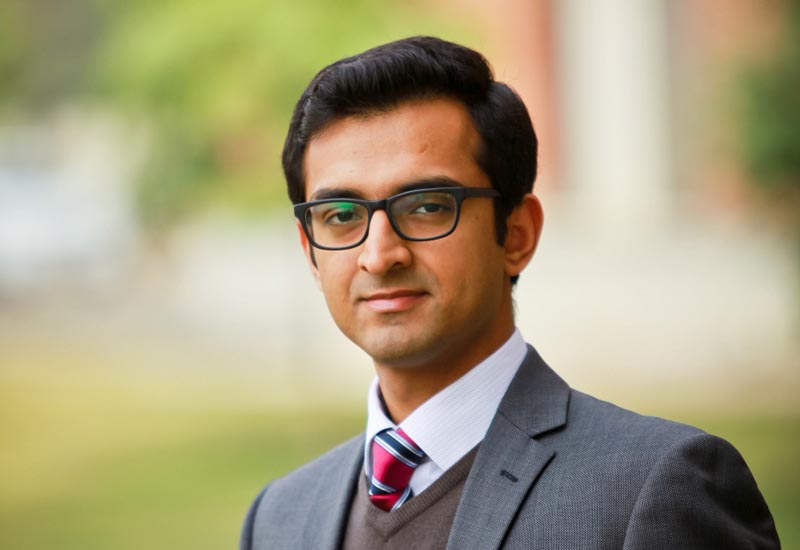The Lakshmi Mittal South Asia Institute’s Aman Fellow, Imtiaz ul Haq, discusses his research on financial services in Pakistan and what excites him most about his upcoming fellowship at Harvard.
How did you first become interested in studying how individuals engage with financial services? Were there any specific experiences that lead to your study of this topic?
I have been fascinated by how humans make financial decisions for a while. This interest first developed during my graduate studies when I realized people do not always behave rationally even in developed capital markets, which are arguably some of the most competitive markets that exist. At that time, I was particularly puzzled by the size and growth of actively-managed mutual funds, a product that is inefficient compared to the simpler alternative of passively-managed funds. This curiosity motivated me to examine how individuals and institutions engage with financial products.
My research took an interesting turn when I moved back to Pakistan. A significant portion of the population does not sign up for even basic financial products. The consequences of not doing so are far greater in this case; the absence of such services lead to more than just a loss in financial returns and have a substantial welfare impact.
When faced with vulnerability of any kind, the impact is especially pronounced. The 2014 floods in Pakistan were a haunting demonstration. Hundreds of villages in the northern and eastern parts of the country were flooded, affecting over a million people in all. Many people, including several I knew personally, were unable to send money to their relatives in these villages because they had no means to do so as they relied on informal services, which had broken down. The victims, who desperately needed money for food and shelter, faced great suffering as a result. This left a lasting impression on me and motivated me to study how financial services can help the poor in the face of such aggregate shocks.
Is there anything that has surprised you while studying how the poor in developing countries utilize formal and informal financial services to meet their needs?
The poor are much more sophisticated in dealing with financial services than they get credit for. One thing I have realized is that a majority of the poor in developing countries are in a state of perpetual crisis management when it comes to finances. They have a complicated mechanism involving constant borrowing, saving and transferring money among their network in order to survive. Formal financial services typically have a limited role to play in this, not because the poor are unable to comprehend the benefits but usually due to the various constraints within which they operate. The restriction to informal services only makes the job harder for the poor, yet many of them continue to persist with this fragile system. This is an impressive feat and I think it is best captured by the term used in the book Poor Economics (Banerjee and Duflo) when they refer to the poor as ‘barefoot hedge fund managers’.
What excites you most about coming to Harvard?
Without a doubt, it would be the intellectual life at Harvard. The institution houses some of the world’s leading scholars across a variety of disciplines. This will help me not only in advancing my research but also give me an opportunity to become an active student again. I always enjoy learning, but in my job I have not had as many opportunities as I would like recently. This fellowship would allow me to immerse myself full-time in a learning environment again. I hope to make full use of this opportunity by auditing courses, participating in seminars and interacting with scholars on a diverse range of topics.
How do you hope that this fellowship will help you achieve your goals?
My primary objective is to advance my work on micro-insurance. I hope to make the most of the fellowship by incorporating feedback from the various researchers affiliated with SAI as I work on developing field study proposals. I also intend to apply for funding grants to support the fieldwork. While such fieldwork tends to take a few years to complete, I hope to initiate some collaborations during my time here that will carry forward into the future. In doing so, I intend to take advantage of the multi-disciplinary perspective that SAI offers. Indeed, that is one reason why I am also keeping myself open to work on other interesting ideas that build off my initial scope. I am confident that my interactions as a fellow at SAI will inspire me to expand my research portfolio in interesting directions.
How might you implement your research when you return?
My research on protecting the poor against aggregate shocks in South Asia will be especially important given the region’s massive scale of poverty as well as the fact that it is expected to be one of the most vulnerable to climate change in the coming years.

